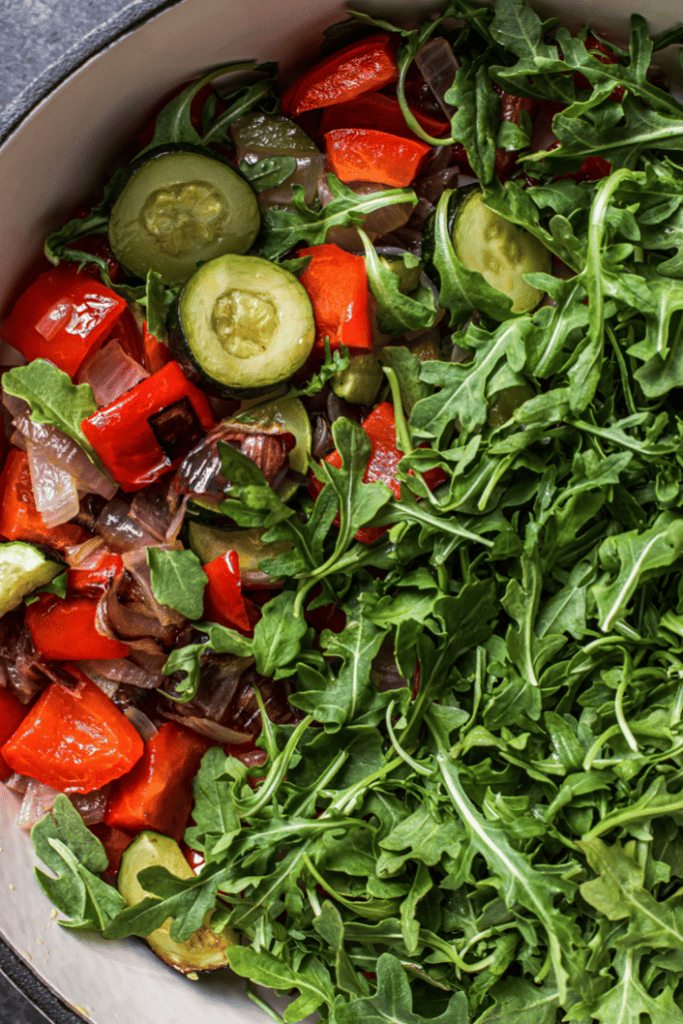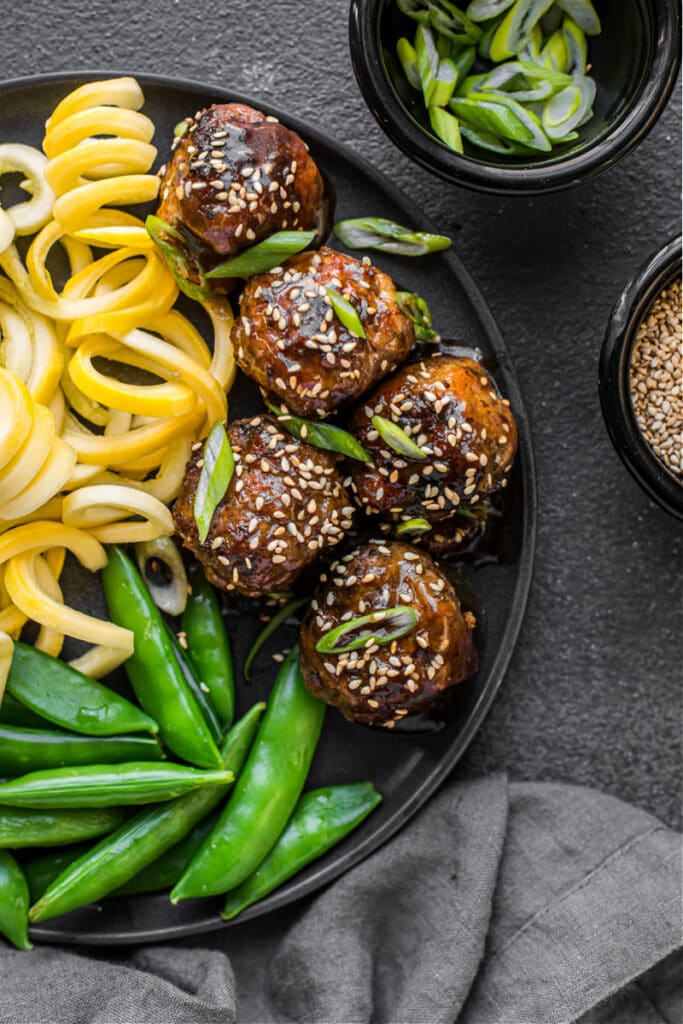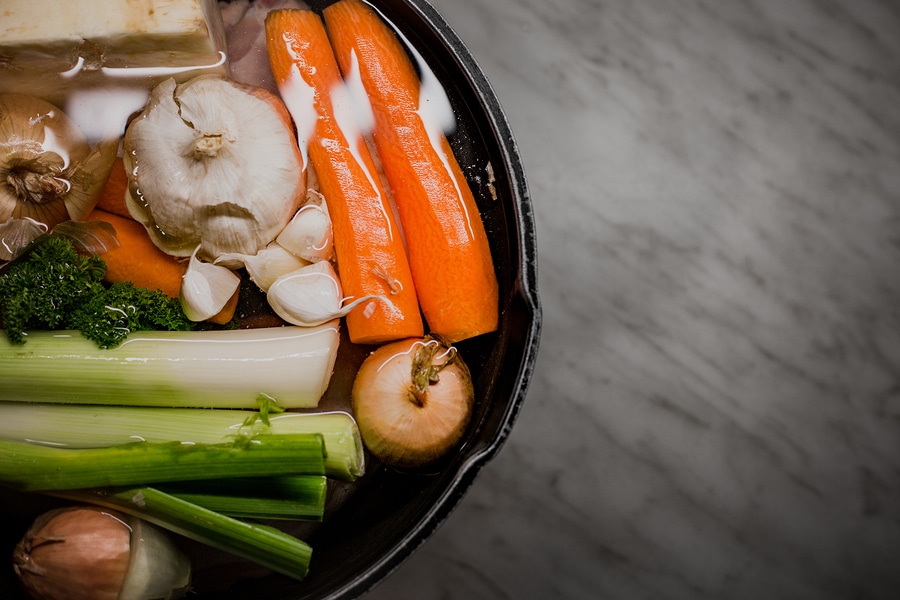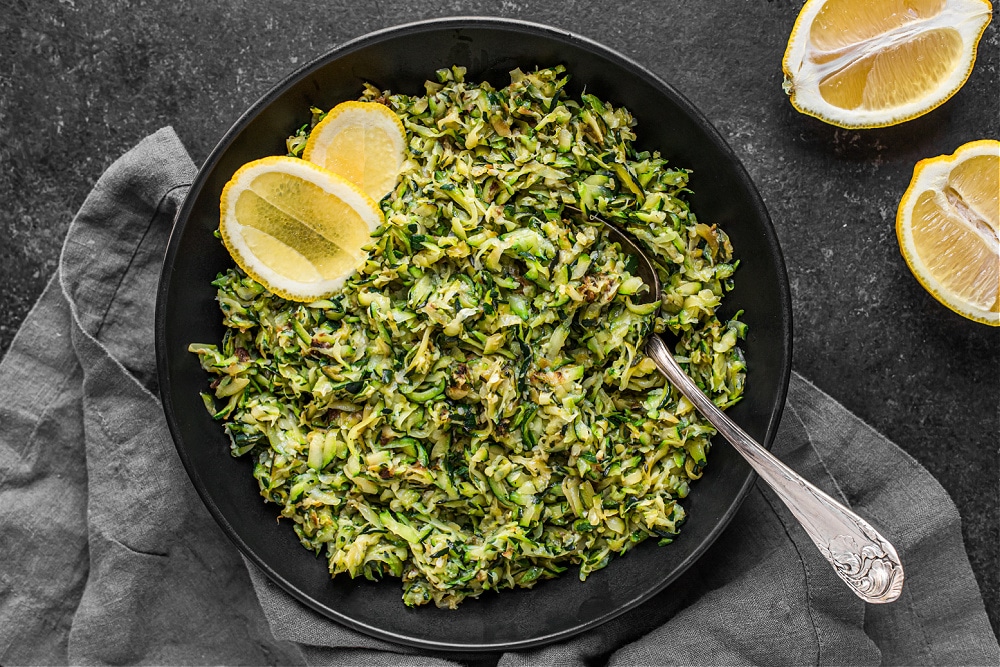Have you ever wondered what it would look like to eat a nutrient-dense diet?
I often refer to a nutrient-dense diet as my preferred method of eating for not only detoxification and healing, but also to work toward and maintain optimal health. It is the way I ate on my journey toward healing Hashimoto’s, and it is the way I currently eat today in order to continue to feel my best.
Before we get into what a nutrient dense diet is, let’s start with what it’s not!
A nutrient dense diet is not a fast-acting weight loss diet. It is not overly restrictive, and it does not require a fancy app that tracks calories, macros, carbs or fat.
Personally, I don’t feel that a nutrient dense diet falls strictly into any kind of “box” we see so many people using today to label how they eat (keto, paleo, metabolic, vegetarian, vegan, etc.).
But while a nutrient dense diet isn’t overly restrictive, it certainly doesn’t include everything. It’s not at all an “everything in moderation” way of eating.
Here are some of the things that do not fall into a nutrient dense diet way of eating:
-Highly Processed Foods
-Inflammatory Vegetable and Seed Oils
-Added Sugars
-Conventional Meats
–The Dirty Dozen
-Alcohol
-Conventionally Processed Dairy
-Grains, Legumes, Nuts and Seeds that haven’t been sprouted, soaked or fermented
Nutritionally dense food doesn’t have weird ingredients on the label that you can’t pronounce or have never heard of. If your great-grandma didn’t know about it, you may want to think twice about eating it!
The goal is to get back to simple, real, whole foods and traditional methods of cooking.
So, if it’s not about what we’re NOT eating, then what is it about?
A nutrient dense diet is more about what we’re putting on our plates as opposed to what we need to keep off our plates. The goal is to fill our plates with foods that nourish us from the inside out.
The foods included in a nutrient-dense diet will give us our biggest bang for our buck, nutritionally speaking. We want them to be packed with high quality amino acids, nourishing fatty acids, healing antioxidants, an array of vitamins and all kinds of minerals.
A Nutrient Dense Diet Is Packed Full Of:
–Vitamins A, D, E and K: These fat-soluble vitamins provide structure for all of your cell membranes, and they are the building blocks of your body’s hormones. They are important for cardiovascular, skeletal, immunological, neurological, endocrine health and beyond! I cannot stress enough the importance of healthy, high-quality fats as being foundational for your health.
–B-Vitamins and Folate: B Vitamins and Folate are especially important for energy supply, methylation (helps regulate cardiovascular, neurological, reproductive and detox systems), and hair + skin health among other things. They are particularly highlighted during pregnancy, but absolutely necessary outside of that as well.
–Vitamin C and other Antioxidants: Vitamin C and other Antioxidants are important for immunological health, detoxification and restoration + repair of the body. They protect your cells from free radicals and damage, including cancer-causing carcinogens.
–Minerals: Magnesium, Zinc, Iron and Iodine, to only name a few. Minerals are important for almost any enzymatic process that happens in the body. Minerals allow our body to function properly in everything from hormonal health to energy supply to sleep regulation.
We want the food on our plate to be densely full of as many nutrients as possible!
In today’s diet and detox obsessed culture, you can find anyone making a case for nearly any kind of diet – raw, vegan, keto, pescatarian, you name it! But it’s not about fitting in a box; it’s about consuming foods that fuel, nourish and heal our bodies.
Through personal and clinical experience, I have found that the nutrient dense diet I outline below is the best starting place for all of us. You can think of it as the foundation upon which we should all eat. And then we can make individual tweaks according to our own bio-individuality as necessary from there.
The Nutrient Dense Diet
1. Clean, Quality Proteins:
Proteins, which are composed of amino acids, have many different functions in the body. You might know them as the structural building blocks of muscles, which is true. But they also act as messengers, antibodies and enzymes, too!
Good proteins include:
Pastured, Organic Eggs (always with the yolk!)
100% Grass-fed + finished Beef, Lamb or Bison
Wild-caught Seafood, Shellfish and Roe
Pastured, Organic Chicken or Turkey
Organ Meats – Liver, Heart, Kidney
A few notes on the foods above:
*Liver and organ meats:
I absolutely have to point out that organ meats are perhaps the most nutritionally dense category of food on the planet. Gram per gram, they are absolute powerhouses for many of the nutrients we highlighted above (especially Vitamin A, Riboflavin, B Vitamins, Vitamin K, Copper, Iron).
I could go on forever about the benefits of liver, but sometimes a picture is worth a thousand words…
*Seafood, Shellfish and Roe:
Wild-caught seafood, shellfish and roe are nutritional all-stars as well, not just as proteins, but because they are so rich in Vitamin D and Vitamin E (specifically, inflammatory-fighting Omega 3’s). Additionally, they are one of the best sources of iodine you can find.
*Pastured, Organic Eggs:
Eggs deserve their own shoutout because not only are they incredibly nutrient-dense, but they’re SO versatile in how you can prepare them.
The healthiest part is the yolk – don’t ever go for just the whites! Pastured, organic eggs contain high amounts of choline, iodine, and selenium, which are all extremely important minerals, specifically for thyroid health.
2. Stock or Broth:
You’ve likely heard of bone broth as being all the rage in the health world right now. And it is indeed an extremely healthy food for some! But you might not know that bone broth actually isn’t tolerated well by everyone.
Meat stock, which is distinct from broth, is more easily digested (it contains fewer amino acids and does not have the high levels of glutamate that bone broth does) and yet still provides the benefits of gelatin, collagen and amino acids.
If you’d like to learn more on the difference between stock and broth and why stock might be the better option for you, read this article.
You can make stock out of poultry, meat or fish. I have an easy meat stock recipe on my blog right here.
3. Full-Fat Cultured and/or Raw Dairy:
Dairy has unfortunately taken on a bad reputation in recent years. But this is where it’s crucial to distinguish between conventional, processed dairy products and those that are raw, unprocessed and/or cultured.
I am absolutely not a fan of conventional (highly processed, with additives, ultra-pasteurized and homogenized) dairy products. However, I am a big believer in the health benefits of raw and/or cultured dairy.
Dairy from high-quality sources (sustainably raised, organic, grass-fed + finished cows) that is kept in its raw state or has been cultured contains high amounts of omega-3’s, vitamin A, magnesium, choline and B vitamins. Here’s additional info about the nutrients in raw milk.
Oftentimes, people who can’t tolerate conventional dairy have no problem tolerating raw or cultured dairy. This is because the enzymes that help us digest the dairy are kept intact in raw/cultured dairy whereas they are destroyed through pasteurization and homogenization in conventional dairy.
My favorite dairy sources:
Organic, Full-fat Yogurt
Raw or Cultured Whole Milk (check this site for raw milk in your area)
Raw or cultured Butter
Ghee
Cottage Cheese
Cultured Sour Cream
Kefir
Raw Cheese
Organic, Full-fat, Raw Cream
*A note on butter:
Butter deserves its own shoutout when it comes to discussing a nutritionally dense diet. It is high in omega-3s, iodine, vitamin A and conjugated linoleic acid (CLA). I suggest consuming a few teaspoons of butter daily.
4. Healthy Fats:
Most of our processed foods have become filled with rancid, inflammatory vegetable and seed oils (canola oil, corn oil, vegetable oil, soy oil, etc.). These should be taken out of our diet completely.
Instead, we should seek to consume high-quality fats daily. These types of fats are actually anti-inflammatory. They aid in hormone function, brain health, nutrient absorption and cardiovascular health.
My favorite healthy fats include:
Lard
Tallow
Ghee
Butter
Coconut Oil
Avocado Oil
Extra Virgin Olive Oil
Properly-prepared Nuts and Seeds
Fats such as lard, tallow, and ghee are all safe for higher heat cooking, whereas butter is better for medium to low heat cooking. Olive oil, unprocessed avocado oil are best for low temp cooking or drizzling. Cold-pressed nut oils are best for drizzling. Here’s more info about the best oils and fats for cooking and baking and the best temperatures for each.
It’s also important to note that nuts and seeds contain enzyme inhibitors that block digestion. They need to be neutralized via proper preparation in order for the body to more easily digest them and actually reap the benefits of their nutrients.
Read all about how to properly soak nuts and seeds here.
5. Complex Carbohydrates:
Extremely low carb diets have become highly popularized, especially for those who are looking to lose weight. I don’t believe cutting out all carbs is the healthiest or most sustainable way to lose weight. Not to mention, it can wreak havoc on hormonal health in the long term.
Whole food, complex carbohydrates in healthy amounts can (and should!) absolutely be a part of a healing and nutrient dense diet. They are higher in fiber and slower to digest than simple carbs. In this way, they can provide energy in a way that increases the sensation of satiety and groundedness.
Here are some of my favorite complex carbohydrates:
Soaked and/or Sprouted Legumes (kidney beans, black beans, lentils, pinto beans, navy beans, etc.)
Soaked and/or Sprouted Grains (rice, millet, sourdough bread, rolled oats, buckwheat, etc.)
Starchy Root Vegetables (potatoes, sweet potatoes, beets, parsnips, etc.)
*A note on the foods above:
Grains and legumes contain anti-nutrients that require neutralization. Their phytic acid that robs the body of important minerals like magnesium, calcium, zinc, copper and iron.
Over time, when we consume these foods without properly preparing them, leaky gut, irritable bowel syndrome (IBS), and autoimmune problems can arise.
Read all about how to properly soak grains and legumes here.
6. Cultured and Fermented Foods:
Cultured and fermented foods provide many health benefits such as anti-oxidant, anti-microbial, anti-fungal, anti-inflammatory, anti-diabetic and anti-atherosclerotic activity. They diversify your gut bacteria and aid in digestion.
Bacteria are measured in colony forming units (CFUs). Studies suggest that only one tablespoon of sauerkraut gives you between 10 million to 10 billion CFUs. And it can contain up to 28 different strands of beneficial bacteria.
To put that in perspective, a typical probiotic you might take could contain up to 25 billion CFU’s and only 10 strands or so of beneficial bacteria per daily pill serving.
I suggest eating your probiotics through whole foods and getting a greater variety and quantity of probiotics than just popping a pill instead.
My favorite cultured, lacto-fermented and probiotic food sources:
Full-fat, Organic Yogurt
Kefir
Kombucha
Sauerkraut of all kinds
Kimchi
Beet Kvass
Cultured Sour Cream or Buttermilk
7. Fresh, Organic Vegetables and Fruits:
This is the one most of us think about when we think about eating healthy foods: your fruits and veggies!
Fruits and veggies do contain a wide spectrum of vitamins, minerals and beneficial nutrients. However, one thing I want us to think about is this: It’s not what you eat, but what you digest.
Many of the beneficial nutrients in fruits and vegetables can only be utilized if they’re consumed alongside some kind of beneficial fat. You may have heard of fat-soluble vitamins (A, D, E and K)? This means these vitamins need fat in order to transport them into cells to be used!
Whenever you eat your fruits and veggies, try to pair them with some sort of high-quality fat or protein. It will not only keep your blood sugar more stable, but it will help you more effectively benefit from the healthy food you’re consuming!
Some favorite fruits and veggies of mine include:
Broccoli, cabbage, cauliflower, leafy greens of all kinds, Brussels sprouts, carrots, celery, asparagus, mushrooms, onions, garlic, leeks, radish, apples, pears, peaches, nectarines, berries of all kinds, sea vegetables.
*A note on the above:
Fruits and veggies are often highly sprayed with chemicals and pesticides. These synthetic chemicals can create or contribute to gut issues, cause hormone imbalance, headaches, liver congestion, etc. For that reason, I highly suggest buying organic. If budget is an issue, then you might consider buying non-organic for the clean fifteen, but always and only ensure you’re buying organic for the dirty dozen.
8. Filtered Water:
Proper hydration is absolutely necessary as part of a nutrient dense diet. Why? Being well-hydrated ensures that we digest our food effectively and eliminate toxins via bowel movements and sweating as well.
Other health benefits of drinking water include:
Carrying nutrients and oxygen to your cells
Flushing bacteria from your bladder
Preventing constipation
Normalizing blood pressure
Lubricating joints
Protecting organs and tissues
Regulating body temperature
Maintaining electrolyte balance
Unfortunately, our tap water can contain high amounts of chlorine, lead, arsenic, heavy metals, pharmaceutics and more.
I suggest finding a filter that removes chlorine (or chloramine, depending on what your city uses to clean its water), and if possible, fluoride as well.
Here are some of my favorites at a variety of different price points:
Clearly Filtered pitcher (ORGANIC15 saves 15%)
Berkey countertop gravity filter (ORGANIC5 saves 5%)
Clearly Filtered under sink filter
Greenfield whole house filtration system – they also have replacement filters that you can use in your Berkey water filter (ORGANIC10 saves 10%)
Pelican shower filter
There it is! You now know the foundation for eating a healthy, healing, nutrient dense diet. It’s not overly complicated, and the benefits for your overall wellness from eating this way are countless.
Make small changes today. Choose one category and start to remove and replace. Pick one category of unhealthy food you regularly consume (for example, margarine or canola oil), and replace it with something from the nutrient dense diet outlined above (for example, cultured butter).
Small changes over time add up to big benefits!
A few last resources to get you going:
Where to find nutrient dense foods:
Thrive Market
Realmilk.com
Eat Wild
Costco and aldi have budget-friendly organic produce
Local farmer’s markets (find them on Eat Wild)
Azure Standard
Nutrient-Dense Diet Resources:
My Cookbooks: Deliciously Organic and The Grain Free Family Table
Weston A. Price
The hundreds of recipes here on my blog
25 Tips for Eating Healthy on a Budget
Some Favorite Nutrient-Dense Recipes for the Beginner:
Breakfast:
Coconut Flour Waffles
Summer Vegetable Frittata
Hearty Sausage Hash with Carrots
Lunch:
Honey Mustard Chicken Salad with Tomatoes and Avocado
Creamy Tomato Soup
Salmon and Baby Greens Salad with Creamy Garlic Dressing
Dinner:
Bacon Wrapped Meatloaf
Easy Grain Free Pizza
Lemon Thyme Chicken Thighs
Dessert:
Quick Homemade Chocolate Pudding
No Bake Cookies
Salted Butter Apple Galette
_________________________________________________________________________________________







